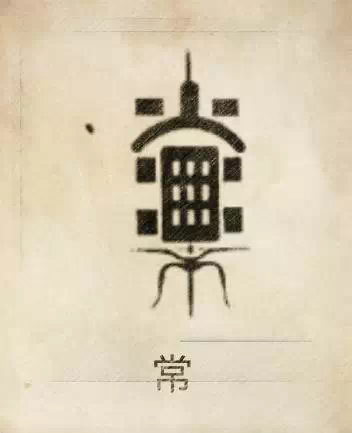The Chang(cháng) surname is one of China’s oldest and most storied family names, embodying the resilience, intellect, and multicultural heritage of Chinese civilization. For readers curious about Chinese history and culture, the journey of the Chang surname provides a glimpse into this.

Ⅰ、Origins of the Chang Surname
1. From a Feudal Territory:
After King Wu of Zhou overthrew the Shang Dynasty, his brother Kang Shu was granted the territory of Wei (modern-day Qi County, Henan). Kang Shu’s descendants were later enfeoffed at Changyi (modern-day Tengzhou, Shandong), adopting "Chang" as their surname.
2. Ancient Legends:
According to myth, the Chang surname existed during the era of the Yellow Emperor (circa 2700 BCE). Two of his ministers, Chang Xian (in charge of engineering) and Chang Yi (a master of lunar divination), are considered early bearers of the name.
3. Name Changes and Ethnic Integration:
During the Northern Song Dynasty (960–1127 CE), the surname "Heng" was changed to "Chang" to avoid using the personal name of Emperor Zhenzong (Zhao Heng).
During the Northern Wei Dynasty (386–534 CE), the Xianbei ethnic groups Helou and Gailou adopted "Chang" as part of China’s cultural assimilation policies.
4. Other Sources:
Some Chang families originated from the Wu Kingdom during the Spring and Autumn Period (770–476 BCE), adopting "Chang" from their fiefdom in modern-day Changzhou, Jiangsu. Others derived the name from official titles like "Chang Bo" or "Chang Shi".
Ⅱ、Historical Figures:
1. Politics and Military:
Chang Hui: A Han Dynasty diplomat who accompanied Su Wu on a mission to the Xiongnu (Huns). Despite being imprisoned for 19 years, he remained loyal to the Han and later became a renowned general.
Chang Yuchun: A Ming Dynasty general who helped Emperor Hongwu unify China. Known for his bravery, he was posthumously honored as "Zhongwu" (Loyal and Martial).
2. Culture and Academia:
Chang Qu: A historian of the Eastern Jin Dynasty, author of Huayang Guo Zhi (Records of the Huayang Region), one of China’s earliest local chronicles.
Chang Gun: A Tang Dynasty chancellor and literary figure who reformed the imperial examination system. His descendants migrated to Fujian, spreading the Chang surname in southern China.
3. Social Leaders:
Chang Lin: A high-ranking official during the Three Kingdoms period, whose family became one of the most prominent clans in the Wei Dynasty.
Ⅲ、Cultural Significance:
1. Family Teachings:
The Chang Family Instructions, compiled during the Qing Dynasty, emphasize filial piety, loyalty, and diligence, shaping ethical standards for generations.
2. Ancestral Halls and Symbols:
Taiyuan Commandery : The most prestigious ancestral region for the Chang clan, located in Shanxi Province.
Pingyuan Commandery: A significant center of Chang influence in Shandong Province during the Han Dynasty.
3. Genealogy and Rituals:
Ancestral temples in Shanxi and Henan serve as pilgrimage sites for Chang descendants. Generational names like "An Da Ti Shang Zheng"reinforce family unity and order.
Ⅳ、Social Impact:
1. Migration Patterns:
Originating in Shandong and Henan, the Chang clan spread to Shanxi and Hebei during the Qin and Han dynasties. Later migrations during the Tang and Ming dynasties expanded their presence across northern and southeastern China.
2. Modern Distribution:
With 6.42 million bearers, concentrated in Henan, Shandong, and Hebei.
3. Historical Contributions:
Politics: Chang Yuchun’s military prowess helped establish the Ming Dynasty.
Culture: Chang Qu’s historical works preserved invaluable records of southwestern China.
4. Global Influence:
Chang families migrated to Southeast Asia during the Ming-Qing era and later to Europe and North America. Notable overseas Chang descendants include tech entrepreneurs and academics, bridging Chinese and global cultures.
Conclusion
The Chang surname is a living chronicle of Chinese civilization. From ancient legends to modern achievements, the Chang surname has always been centered on the core spirit of "loyalty, filial piety, diligence, and thrift," and it thrives the interweaving of tradition and modernity. In today's increasingly culturally aware world, the story of the Chang surname provides us with a unique perspective to observe the of Chinese society.